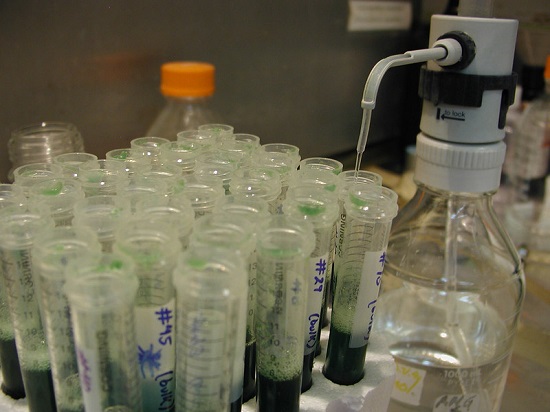Genetic basis of longevity

Within any species, there is variation in seed longevity, even within closely-related germplasm. This can provide vital information for seed genebanks about the molecular basis of this trait. Consider the development of a soybean seed, which you learned about at the beginning of this module. Every protein stored in the developing cotyledons is encoded by a gene; every process is switched on and off by genetic mechanisms, such as DNA methylation. These genetic controls continue as long as the seed survives. By deepening our understanding of these processes, there is potential to make further improvements in seed longevity.
A team at IRRI set out to determine the relative seed longevity of various accessions of Indica rice (Oryza sativa Indica), harvested at intervals between four and five weeks after flowering. The accessions were equilibrated at 10.9% relative humidity and 45°C. Samples were taken at regular intervals, and germination tests were carried out, to reveal the loss of viability during experimental storage. As you might expect, longevity tended to be higher in samples with lower harvest moisture content, and less in samples with higher harvest moisture content.
The study also gave glimpses of a possible genetic basis for longevity. In a genome-wide analysis, eight major loci were identified as potentially having some control over seed longevity. Located on chromosomes 1, 3, 4, 9 and 11, they were shown to enhance p50 by ratios of 0.22–1.86. Comparing these findings with existing knowledge about the rice genome suggested that the mechanisms conferring high seed longevity might be related to DNA repair and transcription, sugar metabolism, reactive oxygen species scavenging and embryonic and/or root development.
POLL: you decide
On the basis of what you have learned so far, how much do you think advances in genomics can improve seed longevity?
Let’s see what you and your course colleagues think. Please express your opinion by following this link to the poll. [Tip: hold Ctrl and click a link to open it in a new tab. (Hide tip)]
The results of this poll will be shared with your course colleagues.
Technical tip
We recommend you open this in a new tab or window (right mouse click or long press) to enable you to easily return to this page.
Beating the clock
